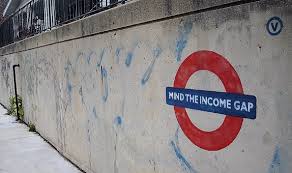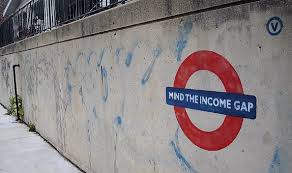
62 of the world's richest people own the same amount of wealth as half of the world's population, claims a report of Oxfam. This statistic is being used by the charity organization to highlight the scale of global inequality.
Five years ago, this number – i.e. persons with half of wealth of the world’s population, was 388.
Over time, there has been an increase of 44 percent in the wealth of the world's richest 62 people, or about half a trillion dollars, Oxfam said.
The wealth of the bottom half has dropped 41 per cent, or over a trillion dollars, during the same period.
The report was released by Oxfam just ahead of the World Economic Forum in Davos, Switzerland.
They had not expected the figures to be this high, Oxfam Australia chief executive Helen Szoke said.
"What it's showing us is that the inequality gap is widening at a much faster pace than what we thought, and the concern is that we are really locking billions of people into a cycle of poverty and there aren't the mechanisms there to pull them out of that," she said.
The issue of tax havens is one mechanism Oxfam was trying to address, Szoke said.
"About $100 billion annually is lost to poorer nations because corporations put their money into low-tax jurisdictions. And once that happens it means that a fair share of tax isn't being paid to support the social infrastructure that's necessary to help people lift out of poverty like education, for example," Szoke said.
A joint effort between both business and government is necessary to repair the global wealth gap, Szoke said.
"This is a boldness that's required and we need that boldness at the Davos meeting," she said.
Szoke said the Oxfam report has identified three key key things that the World Economic Forum could do:
Address the issue of tax practices and clamp down on corporate tax avoidance
Ensure that governments used that money to invest in social infrastructure
The need for a living wage, rather than a minimum wage
Women are often amongst the worst hit by global inequality, the report noted. It also noted that many communities would be let down if the interests and welfare of women was not addressed.
Income inequality was not just an issue for the developing world, said Cassandra Goldie, from the Australian Council for Social Services.
"Australia is clearly not at the extreme, for example like the United States, but we are heading in the wrong direction. Our own significant report found that right now we've got people in the top 20 per cent income group — they're receiving five times as much income as somebody in the bottom 20 per cent," Dr Goldie said.
"And in terms of wealth, it's far more extreme," Goldie said.
Compared to people in the bottom 20 per cent, there was 70 times more wealth for people in the top group, Dr Goldie said.
"We know globally that income and wealth inequality becomes increasingly a problem, it's not good for the economy, and it's certainly not good socially," she added.
(Source:www.abc,net.au)
Five years ago, this number – i.e. persons with half of wealth of the world’s population, was 388.
Over time, there has been an increase of 44 percent in the wealth of the world's richest 62 people, or about half a trillion dollars, Oxfam said.
The wealth of the bottom half has dropped 41 per cent, or over a trillion dollars, during the same period.
The report was released by Oxfam just ahead of the World Economic Forum in Davos, Switzerland.
They had not expected the figures to be this high, Oxfam Australia chief executive Helen Szoke said.
"What it's showing us is that the inequality gap is widening at a much faster pace than what we thought, and the concern is that we are really locking billions of people into a cycle of poverty and there aren't the mechanisms there to pull them out of that," she said.
The issue of tax havens is one mechanism Oxfam was trying to address, Szoke said.
"About $100 billion annually is lost to poorer nations because corporations put their money into low-tax jurisdictions. And once that happens it means that a fair share of tax isn't being paid to support the social infrastructure that's necessary to help people lift out of poverty like education, for example," Szoke said.
A joint effort between both business and government is necessary to repair the global wealth gap, Szoke said.
"This is a boldness that's required and we need that boldness at the Davos meeting," she said.
Szoke said the Oxfam report has identified three key key things that the World Economic Forum could do:
Address the issue of tax practices and clamp down on corporate tax avoidance
Ensure that governments used that money to invest in social infrastructure
The need for a living wage, rather than a minimum wage
Women are often amongst the worst hit by global inequality, the report noted. It also noted that many communities would be let down if the interests and welfare of women was not addressed.
Income inequality was not just an issue for the developing world, said Cassandra Goldie, from the Australian Council for Social Services.
"Australia is clearly not at the extreme, for example like the United States, but we are heading in the wrong direction. Our own significant report found that right now we've got people in the top 20 per cent income group — they're receiving five times as much income as somebody in the bottom 20 per cent," Dr Goldie said.
"And in terms of wealth, it's far more extreme," Goldie said.
Compared to people in the bottom 20 per cent, there was 70 times more wealth for people in the top group, Dr Goldie said.
"We know globally that income and wealth inequality becomes increasingly a problem, it's not good for the economy, and it's certainly not good socially," she added.
(Source:www.abc,net.au)





